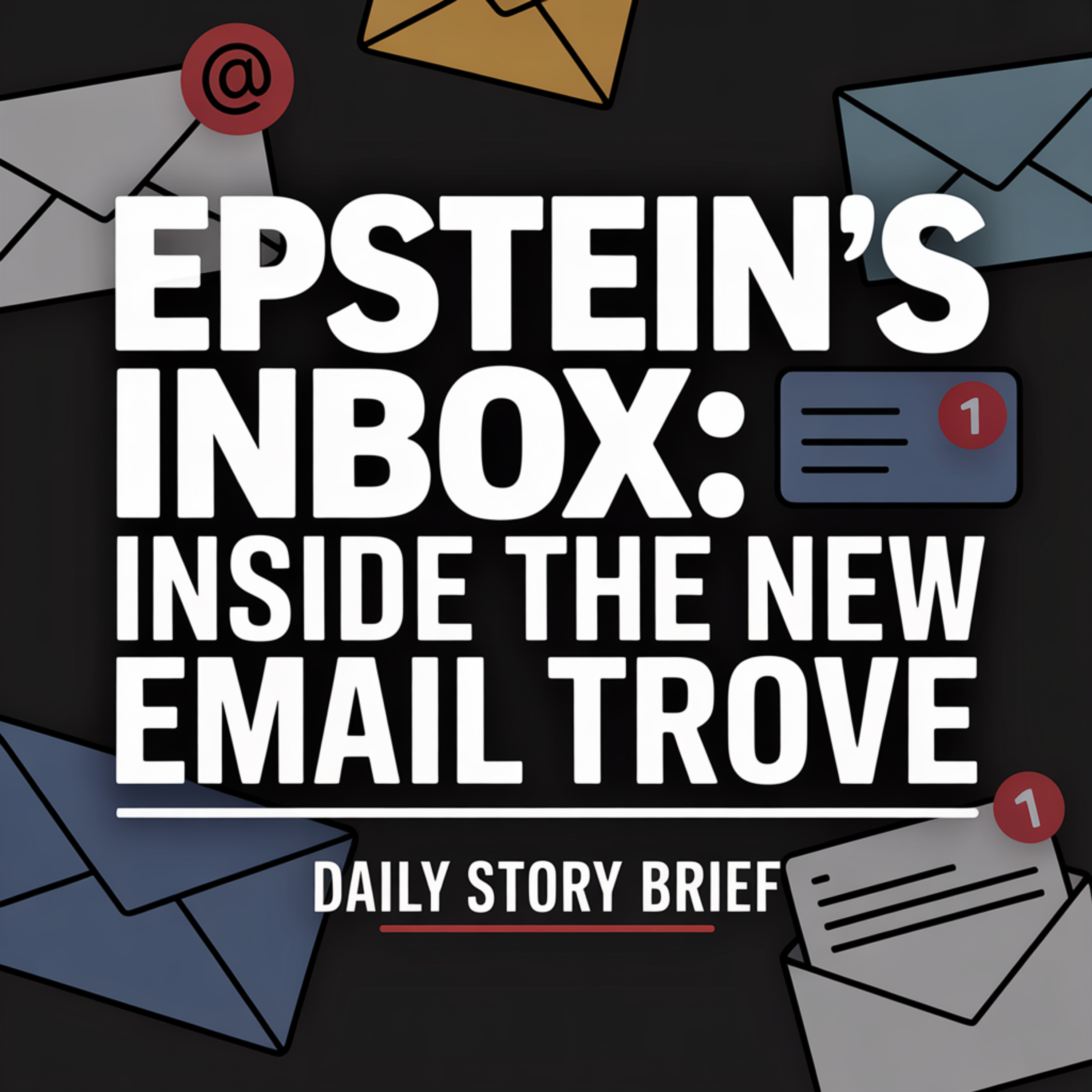Podcast Episode Details
Back to Podcast Episodes
Epstein’s Inbox: Inside the New Email Trove
Season 1 Episode 2
Newly uncovered emails from Jeffrey Epstein’s estate are shaking Washington—and they paint a far more complicated picture than anyone expected.
In this episode, we break down the explosive messages obtained by the House Oversight Committee and explain what they reveal about Epstein, Donald Trump, and a circle of powerful men caught in the shadows of his world.
From private accusations to political fallout, here’s what’s actually inside Epstein’s inbox—and why it matters now.
The newly released documents, spanning roughly 2015 to 2018, provide an unusually direct look into Epstein’s private communications during a period when he was already a controversial, publicly disgraced figure. Though his name is typically associated with crimes dating back decades, these messages show an Epstein who remained active, connected, and outspoken—and whose opinions about major political figures, particularly Donald Trump, were far from flattering.
At the center of this episode is Epstein’s unexpectedly hostile view of Trump. Across multiple emails, Epstein describes Trump as “dirty,” accuses him of questionable business dealings, and even claims that he was “able to take him down.” The tone is not one of rivalry or friendship—it’s contempt, and at times, a clear desire to expose Trump. These exchanges stand in sharp contrast to the public assumptions that Epstein and Trump were closely aligned during certain periods of their lives. Instead, the documents show Epstein attempting to distance himself, criticize Trump, and sometimes even weaponize information against him.
One of the most discussed messages involves Epstein offering a reporter what he described as photos of “Donald and girls in bikinis in my kitchen.” The documents do not confirm the existence of these photos, but the fact that Epstein believed such images could be used to damage Trump is notable—and deeply unsettling. Another exchange references Epstein’s claim that Virginia Giuffre, one of his most well-known accusers, had spent time at his house with Trump. The Trump White House has categorically denied this claim, calling it false and politically motivated. The emails do not provide definitive proof, but they show Epstein pushing this narrative with confidence.
Beyond Trump, the episode also examines references to Bill Clinton and Prince Andrew—two names long tied to the Epstein scandal. While these messages are less explosive than Epstein’s commentary on Trump, they add more depth to the web of relationships surrounding Epstein in his final years. The documents reinforce that Epstein saw himself as someone who still had influence, leverage, or at the very least, damaging information about powerful individuals. Whether his claims were accurate, exaggerated, or manipulative is part of the conversation we explore.
Politically, the reaction to the release has been sharp and immediate. The White House dismissed the documents as a “hoax,” echoing language that has become familiar in moments of politically charged scandal. Meanwhile, segments of the far-right online ecosystem—typically quick to amplify any story that appears damaging to political opponents—have treated the release with unusual skepticism and at times open hostility. Many of these voices, who normally embrace conspiracy narratives involving Epstein, have either minimized the story or rejected the new material outright due to its negative portrayal of Trump.
If you want a clear, focused overview of the documents everyone is talking about, and why they’ve reignited debates in both parties, this episode gives you the essential context—without the noise.
Published on 2 days, 14 hours ago